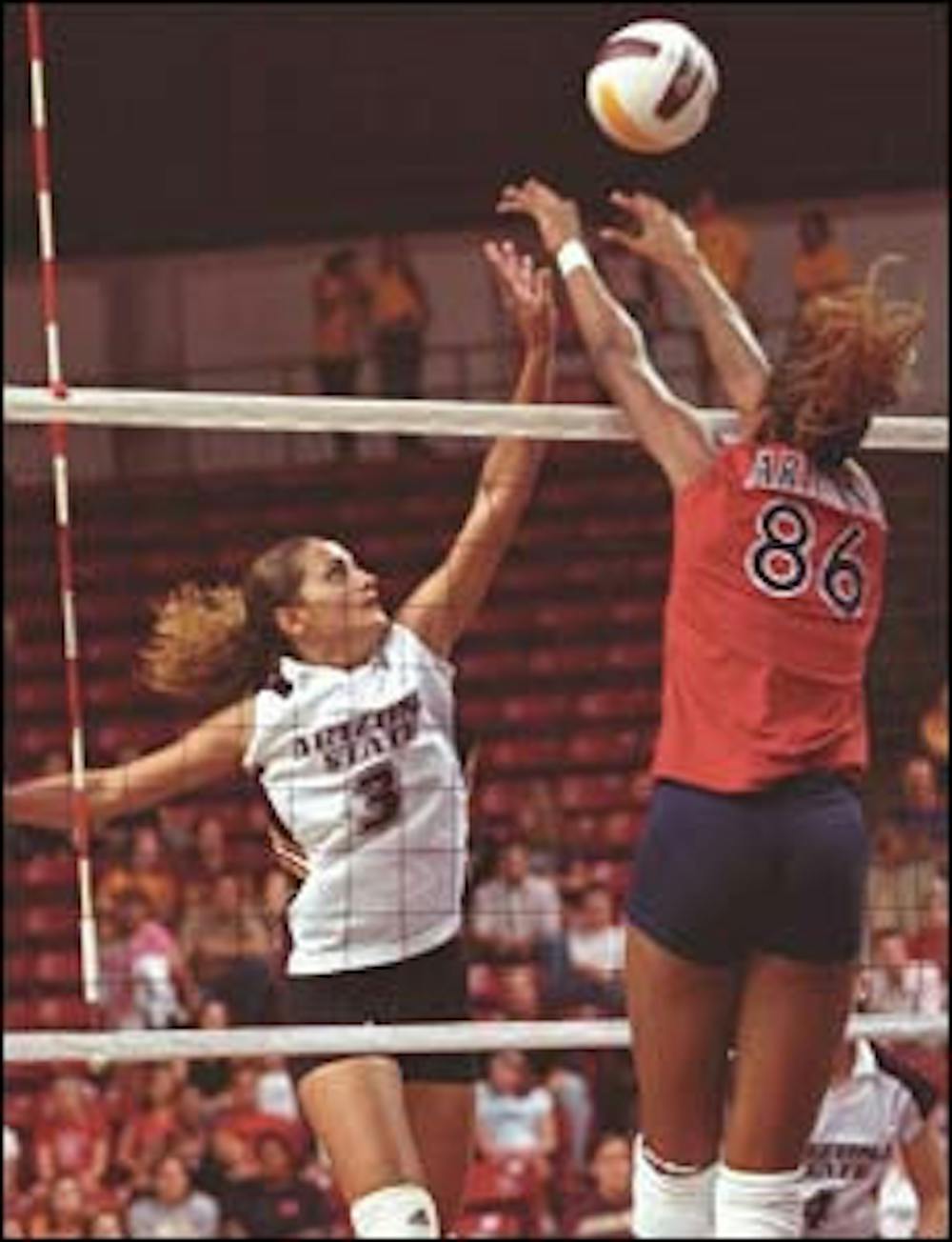Next time you attend a volleyball match, you might need to bring a translator and pronunciation guide.
College volleyball is slowly turning to a United Nations of sorts as 15 teams currently ranked in the American Volleyball Coaches Association Top 25 poll have at least one player from outside the continental United States on their roster.
Typically, coaches recruit internationally for experienced players who have spent multiple years at the professional level in other countries before they could even buy a beer in the United States.
"I think getting a foreign player, oftentimes, is a quick fix for a team," ASU head coach Brad Saindon said.
While Canada is the most popular country to import talent from, players from 11 foreign countries, including Germany, Russia and China, are playing important roles for their top-25 teams.
California's Mia Jerkov, a transplant from Croatia, has been named Pac-10 Player of the Week twice and leads the conference in kills. Two other former recipients of the award, Zanda Bautre (Latvia) and Sanja Tomasevic (Yugoslavia), also have international ties. USC's Bibiana Candelas, a 6-foot-5 middle blocker, was a six-year member of Mexico's national team.
Many teams in the northern portions of the United States rely heavily on recruiting Canadian players.
"Foreign recruiting is getting bigger and bigger, and I think that's mostly because recruiting is getting more and more competitive," Saindon said.
ASU has also jumped on the international bandwagon, with two of its main players coming from Brazil. Juliana Escobar, an outside hitter from Sobradinhio DF, was a first-team All-Pac-10 selection last year and is currently second on the team in kills (3.38 per game) and first in digs (3.32 per game). Junior Giovana Melo, the team's second setter, has seen playing time in all but three games this season, and is expected to move into the starting spot for her senior year.
The Sun Devils' first international player, Fernada Habiger, was also Brazilian. The 5-foot-11 setter played for ASU for two years in 2001-02 and was influential in recruiting Escobar, as both played at Barton County Community College in Kansas.
The transition from playing internationally is hampered by the language barrier. When Melo came to the United States and Western Nebraska Comm-unity College, she couldn't speak English.
As the team's setter, she constantly had to direct teammates where to go on the court, something that was difficult when the spoken word was not an option.
Saindon's biggest complaint against international players is what he calls "mercenaries" - players who come to play for one or two years and have no intent on getting a degree.
Melo speaks frequently with players from back home in Brazil and tells them of being both a student and athlete.
"Some players would love to come here and do the same thing," Melo said. "[At ASU], you go to school and play volleyball, and some players don't do that."
Reach the reporter at jeffrey.hoodzow@asu.edu.




